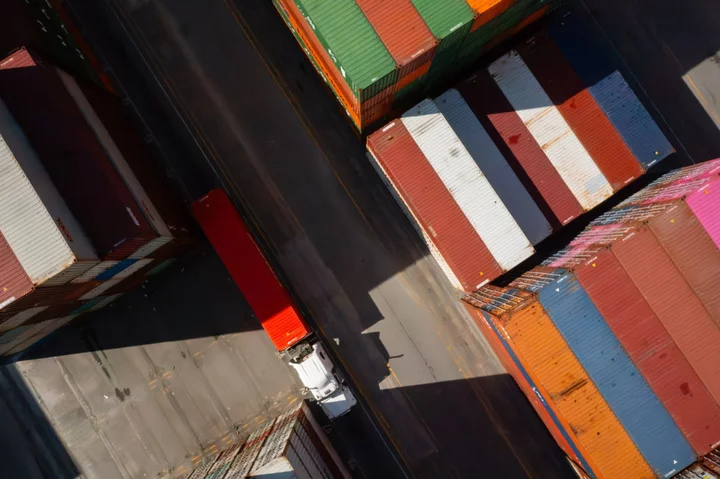Trade chiefs of the most advanced economies criticized some nations for exploiting the commercial vulnerabilities of others to pursue policy objectives, without specifying any culprit.
The trade ministers of the Group of Seven nations pledged to build a wider network with developing nations to ensure supply chains are resilient for key items including critical minerals, semiconductors and batteries, according to the group’s joint statement released Sunday at the conclusion of their two-day gathering in Osaka, Japan.
The group had an outreach session with non-member nations — India, Indonesia, Australia, Chile and Kenya — and also met with private companies, underscoring the high priority placed on keeping supply chains secure.
“We deplore actions to weaponize economic dependencies and commit to build on free, fair, and mutually beneficial economic and trade relationships, and accelerate such collaboration with the wider international community,” the group said in its joint statement. The statement also expressed concern about the use of economic coercion and threats, which it said were increasing in frequency and interfering with the “legitimate” actions of governments.
Although the statement didn’t specify which countries were using these tactics, China is likely one target of this language. In recent years it has used tariffs, import bans and restrictions against Australia, Lithuania and other nations in attempts to change policies it doesn’t like or to express displeasure with actions by foreign governments.
Wars in the Middle East and Ukraine and geopolitical tensions in the Asia Pacific increasingly have prompted governments to use trade barriers, sanctions and subsidies to advance their security and diplomatic objectives. The G-7’s attempt to reach out to non-members reflects pressure that developing nations often face to side with democratic powers or align with the camp led by China and Russia.
Read: WTO Cuts Global Goods Trade Forecast Citing Broad-Based Slowdown
The seven nations also pledged to level the playing field for competition by discouraging protectionism and market distorting measures. The statement said the countries “note with concern the export control measures on critical minerals,” which is likely an oblique criticism of China’s recent imposition of export restrictions on gallium, germanium and graphite, three elements that are used in the manufacture of high-tech goods such as semiconductors and batteries for electric vehicles.
The pandemic-induced bottlenecks in the pipelines for chips and medical devices exposed the risks of depending too heavily on specific nations to supply key items and commodities.
The G-7’s outreach session, which included the five non-member nations, was also attended by Japanese automaker Suzuki Motor Corp., Canadian fertilizer producer Canpotex, Germany’s Siemens Energy AG, London-based miner Rio Tinto and US semiconductor-laser manufacturer Coherent Corp., according to Japan’s trade ministry.
The G-7 also called for the immediate end of any measures that unnecessarily restrict trade, including recent restrictions placed on the flow of Japanese food products, an apparent reference to the Chinese and Russian bans on imports of Japanese seafood in the wake of the release of treated wastewater from the wrecked nuclear power plant in Fukushima.
Despite the appeals for unity and promises of joint action from the member nations, on the sidelines of the conference there were signs of how difficult that is to achieve in reality, even among developed nations.
The European Union’s top trade negotiator Valdis Dombrovskis blamed extra demands from the US for the failure of the two sides to reach an agreement on important minerals. The EU and Australia are expected to hold a critical round of free trade talks in Osaka, with both sides warning that a failure to strike a deal now could delay any potential pact by months or even years.

